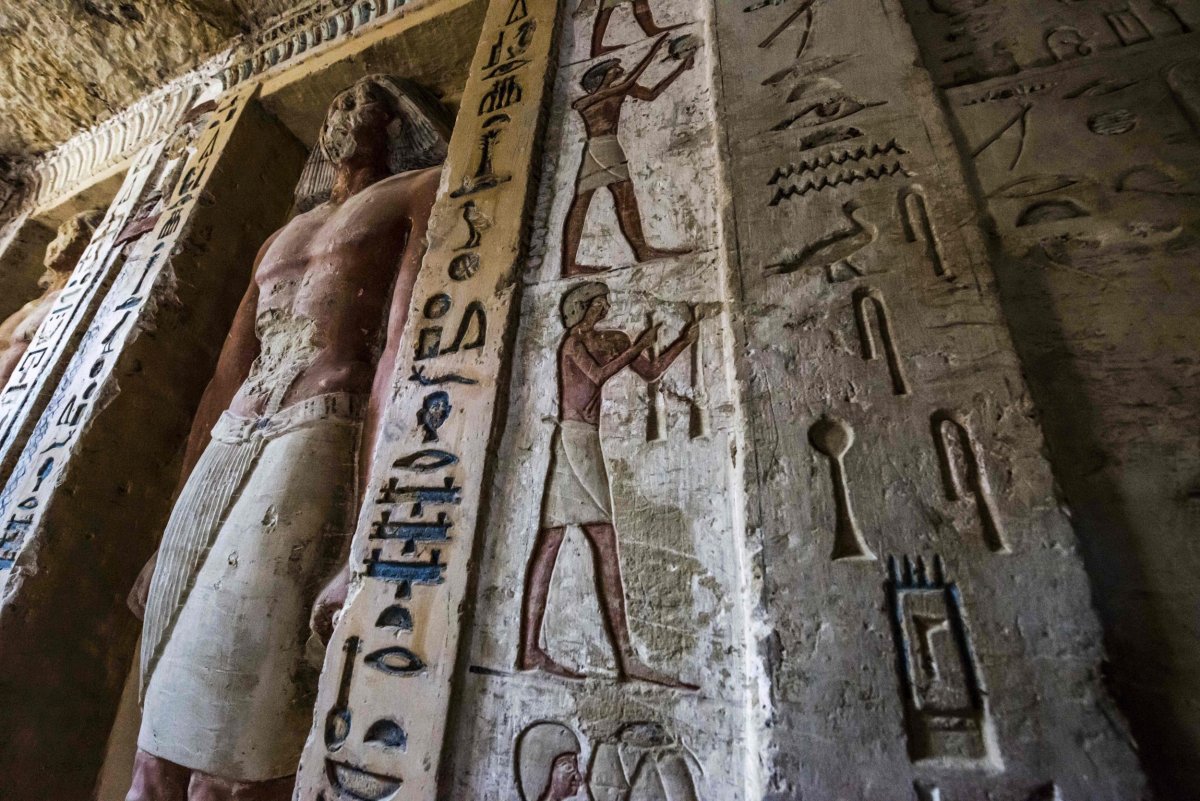Archeologists will begin to excavate a private tomb, which belongs to a fifth dynasty senior official, on Sunday. The tomb, which has been untouched since it was sealed around 4,400 years ago, is that of a high priest. The discovery was announced by Antiquities Minister Khaled Anani on Saturday, and was reported by BBC.
The tomb was discovered in Saqqara, a town near Cairo, in a pyramid complex. The inside of the tomb, as shared in a series of photos, is full of colorful hieroglyphics, wall carvings and a long passageway. In their excavation, archeologists expect to find the sarcophagus of the high priest among a collection of untouched artifacts.
Anani said the tomb is "exceptionally well-preserved" and a "one of a kind [find] in the last decades," according to the Telegraph. Anani also revealed the tomb belongs to Wahtye, who served as a priest during the reign of King Neferirkare. The tomb is marvelously intact.

Though this may be the first tomb of its kind unearthed in 2018, Egypt has explored a variety of impressive artifacts and locations this year. In September, the Antiques Ministry announced they'd discovered an entire village that predates the reign of the pharaohs. The Tell el-Samara ruins could have been frequented as early as 5,000 B.C, according to Fox News.
In the village, silos with food and human bones were found, as were pieces of pottery and and tools. This village could have been inhabited 2,500 years before the pyramids of Giza were built.
In August, the ministry was vocal about a "cursed" sarcophagus. The black marble enclosure appeared to have been sealed and never opened after it first shut somewhere in the years of 305 and 30 B.C. When opened, the remains of three bodies were found, as were numerous sheets of gold, according to Fox News.
The corpses, which were expected to be a group of three soldiers, were examined and one skull showed signs of early surgery. A hole in the skull was an obvious sign of trepanation, a surgery designed to relieve pressure from the brain. While the surgery is known to be common in early history, it is rarely found in Egypt.
Egypt has spoken widely about its recent discoveries in an attempt to draw tourism back to the country after the 2011 uprising.
Uncommon Knowledge
Newsweek is committed to challenging conventional wisdom and finding connections in the search for common ground.
Newsweek is committed to challenging conventional wisdom and finding connections in the search for common ground.
About the writer
Kelly started a career in journalism after completing her education at The New School in New York City. She currently ... Read more
To read how Newsweek uses AI as a newsroom tool, Click here.








